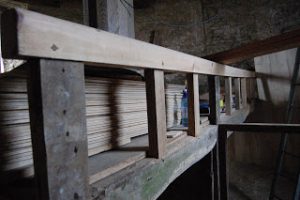How to Navigate Europe’s Photovoltaic Wholesale Supply Chain?
Maneuvering Europe’s photovoltaic wholesale supply chain presents a complex landscape that demands strategic insights and meticulous planning. It is essential to understand market trends and identify reliable suppliers who can meet the increasing demand for sustainable energy solutions. Additionally, establishing effective logistics and ensuring compliance with evolving regulations are critical components that can greatly impact project success. As the solar market continues to evolve, the interplay between these factors reveals important considerations that stakeholders must address to gain a competitive edge. What specific strategies can be adopted to enhance efficiency and reliability in this dynamic environment?
Understand Market Trends
As the demand for renewable energy sources continues to rise, understanding market trends in Europe’s photovoltaic (PV) sector has become increasingly important for stakeholders. Analyzing the dynamics between supply and demand reveals a burgeoning market for solar panels, driven by technological advancements and decreasing production costs. Photovoltaic wholesalers play a significant role in this ecosystem, ensuring efficient distribution and access to high-quality components. Additionally, the shift towards sustainability is prompting regulatory support, which enhances investment in solar energy projects. Trends indicate a growing preference for integrated solar solutions, as consumers seek not only affordability but also reliability and performance. Therefore, recognizing these patterns is essential for stakeholders aiming to capitalize on opportunities within the evolving PV landscape.
Identify Reliable Suppliers
Identifying reliable suppliers within Europe’s photovoltaic supply chain is essential for ensuring the integrity and performance of solar energy projects. A thorough assessment of potential photovoltaic distributors is crucial, as these entities serve as the backbone for sourcing quality solar panels. Evaluating suppliers requires a multifaceted approach, including examining their certifications, production capabilities, and historical performance metrics. Additionally, engaging in direct communication to assess responsiveness and customer support can reveal insights into their reliability. It is also prudent to investigate their supply chain transparency and sustainability practices, as these factors greatly impact long-term partnerships. Ultimately, selecting a dependable photovoltaic distributor not only enhances project outcomes but also fosters innovation and trust within the renewable energy sector.
Establish Effective Logistics
Effective logistics play a critical role in the success of photovoltaic projects across Europe, serving as the framework that guarantees timely delivery and ideal utilization of resources. A thorough logistics strategy must prioritize coordination between manufacturers and distributors, ensuring that photovoltaic components are sourced efficiently and transported with minimal delays. Implementing advanced tracking systems can enhance visibility throughout the supply chain, allowing stakeholders to monitor shipments in real-time and adjust plans proactively. Additionally, establishing strategic partnerships with reliable distributors can streamline the flow of materials, reduce lead times, and mitigate risks associated with supply chain disruptions. By optimizing logistics, photovoltaic project developers can enhance operational efficiency, ultimately leading to cost savings and improved project timelines. Look at here to find out solar product in Europe.
Ensure Regulatory Compliance
Ensuring regulatory compliance is fundamental to the successful implementation of photovoltaic projects in Europe, where a complex web of legislation governs various aspects of solar energy production. Compliance with EU directives, national laws, and local regulations is critical for safeguarding investments and ensuring operational viability. This involves adhering to environmental impact assessments, grid connection standards, and safety protocols. Additionally, understanding the nuances of feed-in tariffs, renewable energy certificates, and subsidies can greatly influence project feasibility and profitability. Organizations must also stay updated on evolving regulations related to solar power, as failure to comply can result in substantial penalties or project delays. As a result, a proactive approach to regulatory compliance is essential for traversing the intricate landscape of Europe’s photovoltaic supply chain.
Build Strong Partnerships
Building strong partnerships is a cornerstone of success in the photovoltaic supply chain across Europe, where collaboration among stakeholders can drive innovation and efficiency. In countries like Italy, where solar energy has gained significant traction, fostering relationships between manufacturers, suppliers, and installers is essential. These alliances facilitate the sharing of best practices, technological advancements, and market intelligence, enabling participants to navigate the complexities of the supply chain effectively. Additionally, strategic partnerships with local governments and regulatory bodies can enhance compliance and open up funding opportunities for solar projects. By leveraging synergies and aligning objectives, stakeholders can optimize resource utilization and accelerate the adoption of solar energy, ultimately contributing to a more sustainable future across European markets.
Conclusion
Steering Europe’s photovoltaic wholesale supply chain necessitates a multifaceted approach that prioritizes supplier reliability, logistics efficiency, and regulatory adherence. By understanding market trends, identifying trustworthy suppliers, optimizing logistics, and ensuring compliance with evolving regulations, stakeholders can enhance operational effectiveness and drive innovation. Additionally, fostering strong partnerships within the supply chain can facilitate collaboration and knowledge sharing, ultimately contributing to improved project outcomes. Strategic steering of this complex landscape is essential for success in the competitive solar market.






